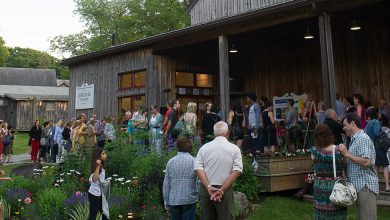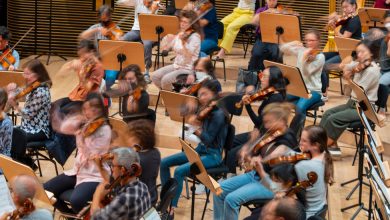200 Years Later, Charleston Honors Denmark Vesey’s Attempted Uprising

Denmark Vesey, a formerly enslaved man who bought his freedom after winning the lottery, tried to organize a slave rebellion in Charleston, S.C., in 1822, making plans to execute white enslavers and sail to freedom in Haiti. But Charleston authorities halted the insurrection and hanged Vesey, along with nearly three dozen others.
Now Charleston is celebrating Vesey’s legacy with several days of events to commemorate the bicentenary of the attempted uprising, and to teach more people about his story.
“A question of ‘Why have we never heard these stories before?’ is probably one of the best outcomes that can happen,” said Tonya Matthews, the president of the new International African American Museum, which is set to open next year. “And the second best outcome is folks wondering how they can learn more.”
The museum is joining the Emanuel African Methodist Episcopal Church and the Charleston Gaillard Center to mark the anniversary.
The commemorations, which began Thursday, will include panel discussions and a variety of performances, including by the singer Anthony Hamilton, the Charleston Symphony, the Lowcountry Voices choir and the comedian D.L. Hughley.
Broader recognition of Vesey has been a long time coming. A monument in his honor was placed in Hampton Park in 2014 after facing decades of opposition. It was vandalized in 2021, and was restored this year.
“The past, it’s not even over, because the past and the present are intimately connected,” said Bernard E. Powers, a retired history professor at the College of Charleston.
Emanuel, a storied church that was founded in 1818, played an active role in the history it is now helping to commemorate. Vesey was an active member of the congregation. After his planned uprising failed, the original church was destroyed by angry whites. Construction of the current building of the church, which is known affectionately as Mother Emanuel, began in 1891.
Emanuel was the scene of a racist massacre in 2015, when a white supremacist gunman opened fire during a Wednesday night Bible service, killing nine worshipers. The gunman was sentenced to death in 2017. The church, now more than 200 years old, has persevered.
“We never stopped Bible study,” said Lee Bennett Jr., the church historian, who has been a member of the church since the 1950s. “We never stopped Sunday service. So the church’s history, people have to understand as Dr. Powers was saying, is rich in hope and resilience. And Denmark Vesey was certainly a part of that from the beginning, exhibiting those same type of attributes.”
Lissa Frenkel, the chief executive officer of the Charleston Gaillard Center, said the center recorded its panel discussion on Vesey and will offer it as a resource to Charleston schools, paired with a curriculum guide.
“I think Charleston is an interesting place because it has this very difficult history with slavery,” Frenkel said. “I think speaking about some of these issues more openly in the community can only lead to healing.”





